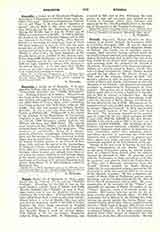

Rusieade, a titular see of Numidia. It is mentioned by Ptolemy (IV, 3), Mela (I, 33), Pliny (V, 22), “Itinerarium Antonini”, the “Tabula Peutingerii’ etc. Nothing is known of its history. Situated near the mouth of the Thapsus, it served as the commercial port of Cirta and exported grain to Rome. The port was called Stora or Ustura, where under Valentinian and Valens granaries were built whose ruins are still visible. The city was known as Colonia Veneria Rusicada. It was a total ruin when rebuilt by the French as Philippeville. Philippeville is the capital of the province of the Department of Constantine (Algeria); it has 21,550 inhabitants of whom 8200 are French, 5900 foreigners, mostly Italians and Maltese, 450 Jews, and 7000 Arabs. The ancient name survives in Ras Skidda, a point of the Djebel Addouna from which juts forth the great pier. The commerce is considerable. Ruins of a theatre, museum, Christian sarcophagus, Christian inscriptions, and the remains of a basilica dedicated to Saint Digna may be found there. Six bishops of Rusicade are known: Verulus, present at the Council of Carthage (255), perhaps the martyr in the martyrology, February 21; Victor, condemned at the Council of Cirta (305) as a traitor or betrayer of the Scriptures; Navigius whose remains and epitaph have been recovered in the church which he erected to Saint Digna in the fourth century; Faustinianus, present at the Conference of Carthage (411) with his Donatist rival, Junior; Quintilianus (?) in 425; Eusebius, exiled by Huneric in 484.
S. PÉTRIDÈS

